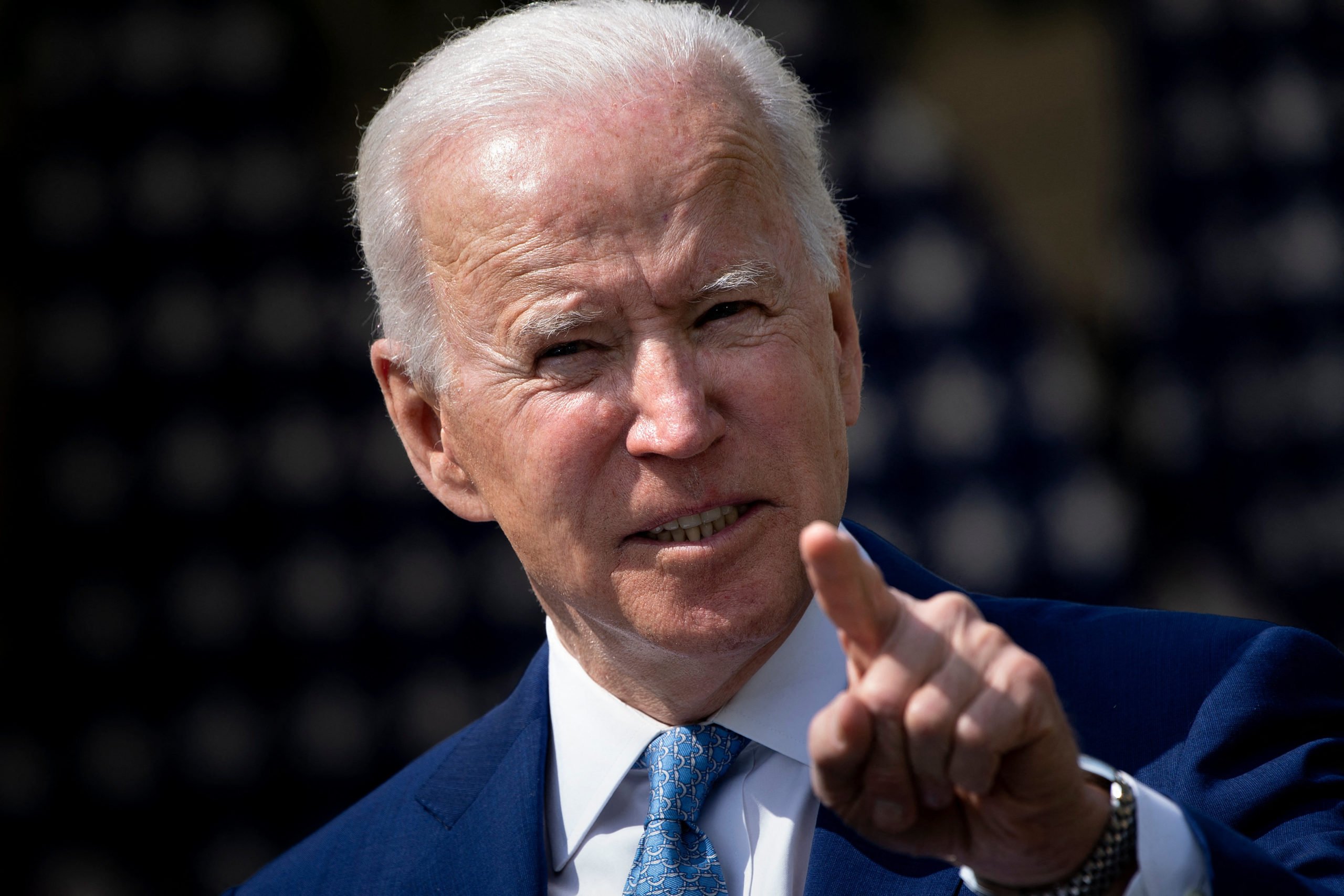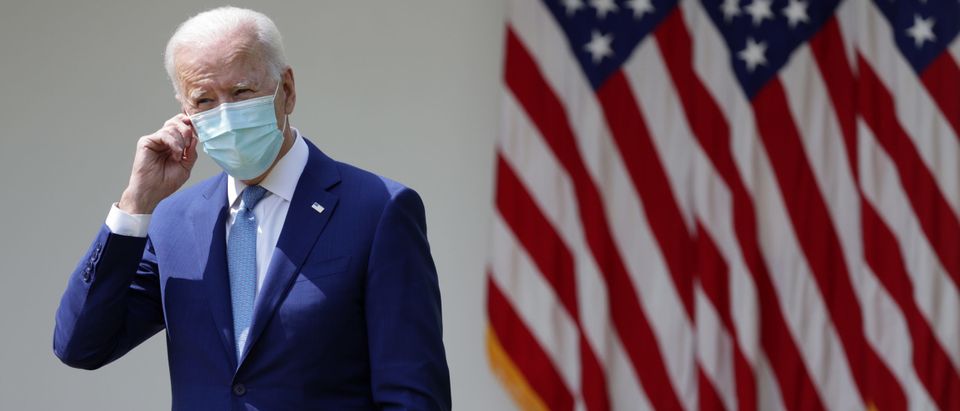President Joe Biden sent his discretionary budget request for Fiscal Year 2022 to Congress on Friday, which includes historic increases across various education, climate and social justice spending programs.
In total, Biden’s “skinny” budget requests $769 billion for non-defense spending, a $105.3 billion increase from the previous year’s enacted budget.
Though the president previously criticized former President Donald Trump’s drastic increases in overall defense spending, Biden’s FY22 request also includes a $13.3 billion increase for defense programs, bringing the total to $753 billion for the year.
Administration officials say the defense bumps will allow the country to pursue “its strategic goals as we outcompete China” and provide pay raises for service members.

US President Joe Biden speaks from the Rose Garden of the White House about gun violence on April 8, 2021, in Washington, DC. – Biden on Thursday called US gun violence an “epidemic” at a White House ceremony to unveil new attempts to get the problem under control. (Photo by BRENDAN SMIALOWSKI/AFP via Getty Images)
“The upcoming appropriations process is another important opportunity to continue laying a stronger foundation for the future and reversing a legacy of chronic disinvestment in crucial priorities,” Shalanda Young, Acting Director of the Office of Management and Budget, wrote Friday morning in a letter sent to Congress. “Together, America has a chance not simply to go back to the way things were before the COVID-19 pandemic and economic downturn struck, but to begin building a better, stronger, more secure, more inclusive America.”
Senior administration officials additionally told reporters Friday morning that Biden’s request comes at a “particularly important moment” to restore non-defense spending to the country’s 30 year average of 3.3 percent of total Gross Domestic Product following massive cuts over the past decade. (RELATED: Trump’s 2021 Budget Includes First Ever Chapter Defining Government Waste, Targets Programs To Eliminate Entirely)
The “historic” non-defense increases include but are not limited to:
- $36.5 billion in Title I grants for “high-poverty” public schools
- $6.5 billion to launch the Advanced Research Projects Agency for Health (ARPA-H) within the National Institutes of Health (NIH)
- $10.7 billion for research, prevention, treatment, and recovery support services aimed at ending the Opioid epidemic
- $8.7 billion for the Centers for Disease Control and Prevention (CDC) to improve “readiness” for future public health crises
- $14 billion in new spending to tackle climate change
- $30.4 billion in housing vouchers for homeless Americans
- $209 million to “reinvigorate” the Department of Justice’s Civil Rights Enforcement programs
- $2.1 billion for DOJ’s ongoing efforts to combat gun violence
- $1 billion for DOJ’s Violence Against Women Act programs
- $861 million for a four-year program that invests in combating the root causes of migration in Central America
Administration officials acknowledged that Biden is delivering his discretionary request at a significantly later point following his inauguration than his predecessors but stressed that the Trump administration’s refusal to cooperate with the transition process is in part responsible for the delay.
The skinny budget notably does not factor in any of the tax reforms or spending proposals put forth in the American Jobs Plan (AJP), Biden’s $2.25 trillion infrastructure overhaul. (RELATED: Biden Admin Massively Overstated How Many Jobs His Infrastructure Plan Will Create — By Roughly 600%)
The president’s full budget — which will square yearly spending with the AJP and the president’s additional, forthcoming pandemic recovery packages — will be released to the public and Congress sometime this spring, the administration officials claimed.


